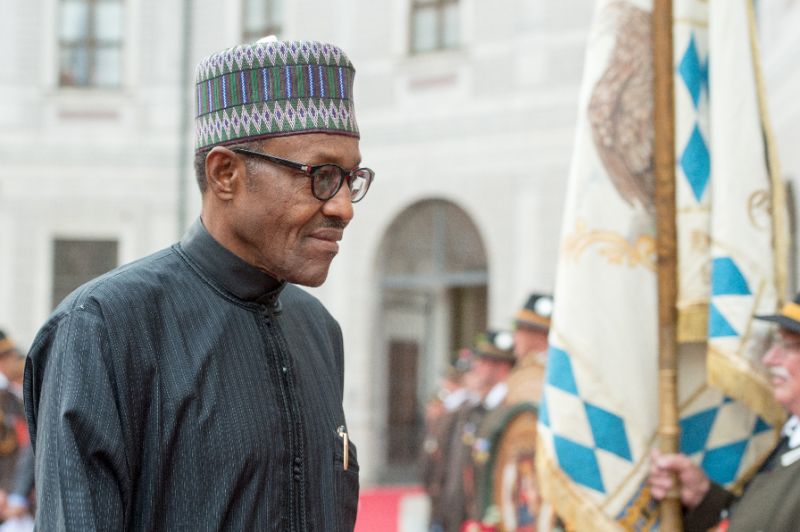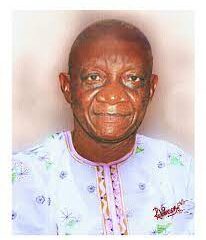National Issues
President Buhari’s Pandora’s Box -By Hassan Musa Hussein


In classical ancient Greek mythology when humans were immortals, there were two brothers Epimetheus and Prometheus. They annoyed and upset the most powerful of gods Zeus. Zeus decided to punish the brothers by chaining Prometheus to the rocks and giving Pandora(first woman on earth) in marriage to Epimetheus. As a wedding gift Zeus gave Pandora a beautiful box with the instruction of never to open it. One day when Pandora’s curiosity got the better out of her,she opened the box.As she raised the box’s lid, out flew all the bad things in the world today, envy, hate deceit, sickness, disease, death.
In the history of Nigeria no leader has made anti-graft war as a hallmark of his administration as does President Muhammad Buhari. Anti-graft war has been launched in Nigeria before, but not at the scale we are witnessing today. Since the inception of this Government hardly does a week pass without a jaw-dropping revelation by news outlets of how some individuals, top civil servants, organisations or politicians looted public funds. Thanks to the anti-graft war, we now know what is called budget padding. A lot of Nigerian citizens are now more aware of how detrimental to the national development and prosperity corruption is. President Muhammad Buhari’s relentless and vigorous anti-corruption war has opened a Pandora’s box.
Corruption is as old as humanrace. It is a global phenomenon not confined only to Nigeria. A report published by Transparency International in 2014 ranked Nigeria 136th out of 176 countries in corruption perception index. It might be amazing to some, that Nigerians has lost the top hot spot positions as the most corrupt nation on earth to so many countries (India, Somali, Afghanistan, Lebanon, Cameroon..). Corruption is a term commonly applied to self- benefiting conduct by public officials and others dedicated to public service. It is an extraction of resources through embezzlement of public funds, extortion, bribery, kickback, fraud, nepotism, inflation of contract, and diversion of funds.
Epidemic of corruption in this country existed since independence 1960 and the nation has lost more than 400 billion dollars to it. And since the return of democracy in 1999 it seems to be increasing progressively. Corruption has spread to all levels of social class in Nigerian society. In this country corruption has no religion, tribe, language, political party orregion.It has been deeply entrenched in the country’s socioeconomicsystem. It was widely accepted that the misappropriation of public funds and assets by corrupt officials has caused an enormous threat to economic and political development in Nigerian. The reason why Nigeria is underdeveloped and indebted is mostly due to corruption of the trustees of national purse. All previous administrations, military and civilians failed to achieve sustainable development in Nigeria mainly due to presence of unrelenting corruption in the system.
The political elites and senior civil servants maintain their power and influence through personal favors such as allocation of funds, grants, job hiring, contracts and license. A lot of citizens are more likely to seek help and support from public officials. Some corrupt officials (bureaucrats and politicians) take advantage of their position to extract as much as possible from the private individuals, companies and state.Such officials also tend to divert resources designated for running and maintaining public projects and institutions in their charge (hospitals, schools, universities, armed forces facilities etc) to corrupt private purpose. These unlawful acts cause misery and endanger the lives of citizens whom those projects and institutions are meant to serve. The poor conditions of our hospitals, schools, roads and universities are good examples. Dasukigate is another example where resources which could have been used to purchase arms for the fight against insurgent in Northeast was diverted and looted.
Nigeria is highly endowed with human and natural resources.Nigeria has a population of more than170 million people and it is Africa’s biggest oil exporter. Regrettably, despite the abundant resources and development initiatives, it has remained a country of extreme paradox with pervasive poverty in the midst of plenty.
The causes of corruption in our society are greed, poor pay incentives,lack of positive values, excessive materialism, societal pressures, lack of effective welfare structures, culture of impunity, insecurity of employment tenure, lack of transparency in public services, acceptance of corruption as a norm by the populace, absence of key anti- corruption tools, nepotism and lack of fear of God.
The economic, social, and political consequences of corruption in Nigeria are devastating. Misappropriation of public fund by government officials has over the years trapped many Nigerians in the vicious cycle of poverty. Poor infrastructural development, poor health care services, falling standard of education, poor climate for foreign investment, porous security situations, rise in poverty, rising unemployment and contraction of national economy are some of the effects of corruption in this country. It is a well- known fact that unemployed people are more likely to indulge in behaviours that foster insecurity and contraction of a nation’s economy may lead to increase of conflicts between ethnic/religious groups.
For Nigeria to develop and prosper there is a need to adopt mechanism to fight corruption. The crusade against corruption must explore all avenues for possible solutions. Some of the solutions are1.Educate and enlightenment of population – corruption must have a clear and easily understood meaning for all citizens. Even former President got confused defining the word 2. Strong anti- corruption legislation 3. An independent and transparent judiciary without any interference from the executive branch 4. End impunity (sometimes the anti-corruption war appears to be effective only when it is waged against political adversaries) 5. Strong anti-graft institutions 6. Poverty eradication – Economy growth increases living standard of the population. Health, education, infrastructures and food security must be given prominence.
This administration’s crusade against corruption has some of its setbacks. Some critics are decrying the methods used by the anti-graft agencies in the selection of individuals or organisations to be probed. Thereby enhancing the notion that the authorities are sparing some officials who are corrupt.And also the authorities seems to forget that nepotism is the pinnacle of corruption by turning a blind eye to the recent illegal back door recruitment of cronies and relatives of the ruling class into CBN,FIRS and other Government agencies.
For the crusade against corruption to succeed, it has to be consistent, non selective and transparent.
Hassan Musa Hussein


















